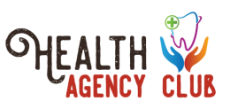Seasonal allergies—often referred to as hay fever—can cast a shadow on the joy of changing seasons. As flowers bloom and trees flourish, so does the pollen count, triggering uncomfortable symptoms for many. This comprehensive article delves into the intricacies of seasonal allergies, exploring common symptoms, triggers, and recommended strategies for prevention and treatment.
Recognizing the Symptoms
Identifying seasonal allergies begins with acknowledging the signs. Recognizable indicators include sneezing, nose congestion, itchy or watery eyes, and a scratchy throat. The severity of these symptoms can fluctuate, affecting daily routines and general health.
Identifying Common Triggers
Understanding the triggers is crucial for effective allergy management. Pollen from trees, grasses, and weeds is a primary culprit, with peak seasons varying based on geographical location. Mold spores and outdoor pollutants can also contribute to allergic reactions. Identifying specific triggers aids in developing targeted prevention and treatment plans.
Consulting an Allergy Doctor
When symptoms persist or significantly impact daily life, seeking guidance from an allergy doctor, also known as an allergologist, is advisable. These specialists possess understanding and expertise in diagnosing and treating allergies, employing various tests to pinpoint specific triggers. By understanding individual sensitivities, allergologists can tailor treatment plans to provide effective relief.
Prevention Strategies
Preventing allergic reactions is a key component of managing seasonal allergies. Here are allergist-recommended strategies:
- Monitor Pollen Counts: Stay informed about local pollen forecasts as well as limit outdoor activities during peak pollen times.
- Use Air Purifiers: Indoor air quality plays a crucial role in allergy management. Air purifiers help reduce airborne allergens, providing a haven for allergy sufferers.
- Keep Windows Closed: Prevent outdoor allergens from entering your living space by keeping windows closed during high pollen seasons.
Treatment Options
Allergists may recommend a combination of the following treatments:
- Antihistamines: Over-the-counter or prescription antihistamines can help relieve itching, sneezing, and a runny nose.
- Nasal Steroids: These medications reduce inflammation and congestion in the nasal passages.
- Immunotherapy (Allergy Shots): Specialists may suggest allergy shots to desensitize the immune system to particular allergens for long-term relief.
Conclusion
Seasonal allergies may be a recurring challenge, but effective management is within reach with proper understanding and expert guidance. By consulting an allergy doctor—even through telemedicine platforms like NowServing PH—identifying triggers, and implementing allergist-recommended strategies, individuals can enjoy the changing seasons without being held hostage by hay fever. Take control of your allergies and embrace the beauty of each season with confidence and comfort.
Schedule an appointment with allergy doctors through NowServing PH—a telemedicine and practice management platform in the Philippines.




